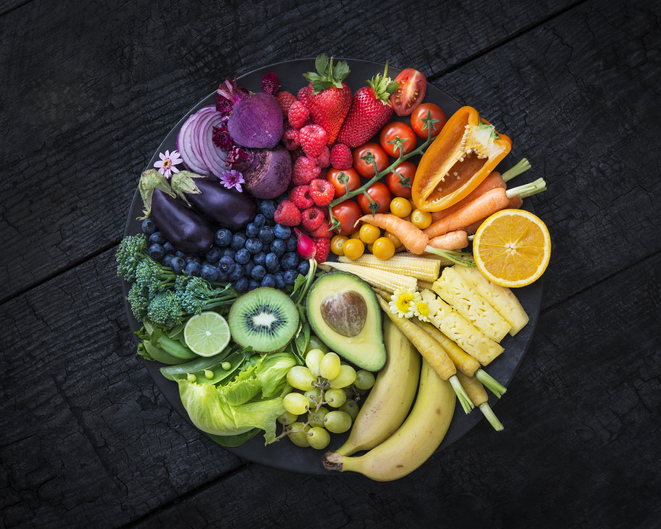Be Proactive About Parkinson’s Disease With These 2 Vitamins

By Joy Stephenson-Laws, JD, Founder
The brain is the most complex organ of the human body. Weighing three pounds, the brain has about 100 billion neurons (nerve cells). Without our brains, we could not walk, talk, eat, breathe, control our heart rate and so much more.
I cannot express enough how important it is to be proactive about brain health.
Many people are blessed to live very long lives. We hear about people making it to the age of 100! If we are to be blessed with such longevity, we, of course, would want the best quality of life as possible. And with older age, we often see brain issues such as dementia.
“The brain is one of the hardest working organs in the body. When the brain is healthy it functions quickly and automatically. But when problems occur, the results can be devastating. Some 100 million Americans suffer from devastating brain disorders at some point in their lives,” according to the National Institute of Neurological Disorders and Stroke.

One neurological disorder that is very prevalent in the United States is Parkinson’s disease. It is a disorder of the brain that causes certain brain cells to die or become damaged. The cells that produce dopamine are damaged in people with Parkinson’s disease. Dopamine is a chemical found in the human body that plays a role in controlling movement as well as emotional responses. Individuals with Parkinson’s disease usually experience involuntary shaking, blank facial expression and a stiff gait.
According to the National Institutes of Health (NIH), Parkinson’s affects more than one million people in the U.S. In addition to this, about 60,000 new cases of this disease are found every year.
Although Parkinson’s disease is not necessarily considered fatal, the complications can be serious and can certainly affect the afflicted person’s quality of life.
Famous boxer Muhammad Ali fought Parkinson’s for nearly three decades before he died of septic shock in 2016. And some of our other most beloved celebrities, such as Robin Williams, have fought Parkinson’s.
(To read about celebrities who have fought Parkinson’s and what some of the complications of this illness can be, check out this pH Labs blog).
Parkinson's does not develop overnight.Brain disease is not always seen in elderly people. Parkinson’s is often seen in Boomers such as myself. In my opinion, your fifties, sixties and seventies are too young to be suffering from such a devastating brain condition. We have to acknowledge that these conditions do not develop overnight, so it is important to be proactive while you are younger. If you feel like you “missed the boat” on doing something about this while you were young, it is never too late to be proactive and practice healthy habits.
Of course, we cannot control everything when it comes to our health. Some healthcare professionals believe that Parkinson’s is genetic, however, there is evidence that environmental factors also play a role. Environmental factors include diet, exercise and pollution.
In my opinion, two of the most controllable environmental factors are diet and exercise. Eating for brain health is so important. And according to a recent study, there are two key nutrients that may play a big part in lowering your risk of developing Parkinson’s disease: vitamin C and vitamin E.
I’ve always been a big advocate for vitamin C, especially because I am genetically built in a way that makes it difficult for my body to absorb adequate amounts of this key nutrient. Vitamin E has always been on my radar for its known skin benefits. But it also turns out that these two vitamins may be good for our brains.
“According to the European researchers involved in the new study, vitamins C and E are also antioxidants that could ward off the cell damage Parkinson's causes,” according to this Medical Xpress report discussing the study.
“Specifically, antioxidants might help counteract ‘unstable’ molecules and the oxidative stress that can lead to a loss of a brain chemical called dopamine, which is a hallmark of the condition.”
There are so many healthy, delicious foods rich in these vitamins such as oranges, bell peppers, broccoli, kale, kiwis, lemons, strawberries, almonds, asparagus and avocado. For getting an adequate intake of vitamins C and E, a good rule of thumb is to try to eat as many natural colors as possible. This means filling your plate with fruits and veggies. I like to throw greens into my smoothies for added nutrients. You can also make an effort to have a salad with every meal. Yes, you can eat salads with your scrambled eggs. Leafy greens are incredibly nutrient-dense.
There are a few important takeaways from the study:
- This study does not prove that vitamins C and E prevent Parkinson’s. There is, however, evidence which suggests that it can help.
- Only high levels of these vitamins appeared to be effective.
- The study was not able to determine if supplements were just as effective.
The above underscores the importance of undergoing routine nutrient tests in order to determine if you have any nutrient imbalances or deficiencies. If the test reveals that you do, a competent healthcare professional can work with you on making the necessary dietary changes and recommend quality supplements if necessary. You might also want to consider vitamin injections and IV pushes if larger doses are required.
Also remember that committing to a regular exercise routine is also key for brain health, and it goes without saying that abusing drugs and alcohol and smoking cigarettes are big no-nos for brain health and the prevention of brain disease.
Enjoy your healthy life!
Disclaimer: This article is not intended to provide medical advice. Please consult with your doctor or another competent healthcare practitioner to get specific medical advice for your situation.
The pH professional health care team includes recognized experts from a variety of health care and related disciplines, including physicians, attorneys, nutritionists, nurses and certified fitness instructors. This team also includes the members of the pH Medical Advisory Board, which constantly monitors all pH programs, products and services. To learn more about the pH Medical Advisory Board, click here.







